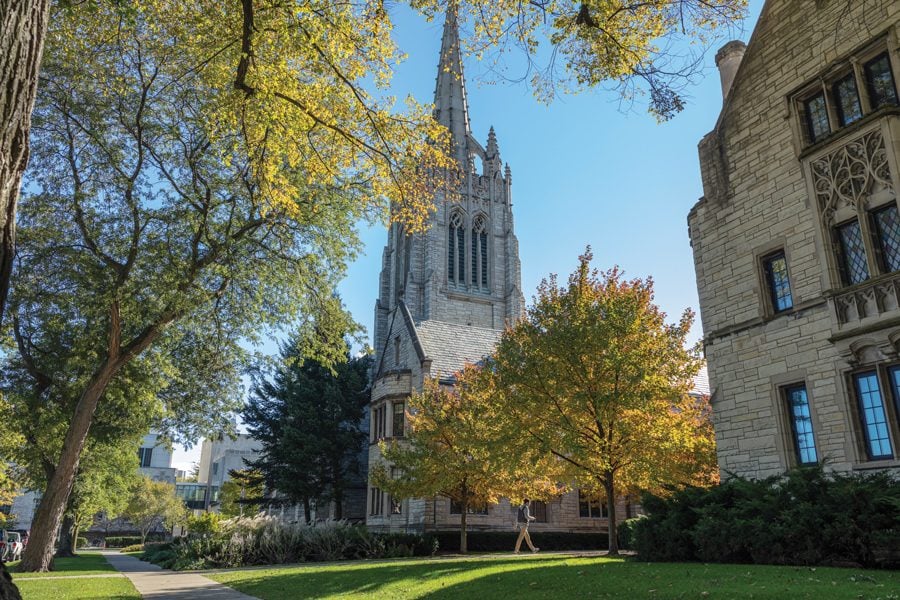TGS creates seven-year strategic plan, aims for measurable changes
The Graduate School announced earlier this year a seven-year theme-driven strategic plan to implement improvements in the school.
November 25, 2018
The Graduate School Dean Teresa Woodruff early last month announced Vision 2025, a seven-year strategic plan to implement tangible improvements in TGS by focusing on one theme each year.
This year’s focus is structure, which Woodruff said will include providing more avenues for student input and improving the TGS website to provide more information for students.
“Structure precedes function, so we want to make sure we have structures in place so we can advocate for our students and we can cultivate and connect them,” she said.
Not all the annual themes are finalized yet, said Rich Cohrs, TGS director of communications and outreach. The next academic year will focus on well-being and promoting awareness of mental health, and 2020 to 2021 will focus on representation, said Stephanie Brehm, TGS assistant director for academic and strategic initiatives.
This year, the school will convene a diversity and inclusion advocacy council to create a structured process for input from graduate constituents, Brehm said. In addition, the school hosted the first TGS alumni reunion this homecoming as part of an effort to create a stronger alumni community, Brehm said.
The new website will be “more informative and user-friendly” and is expected to launch next summer, Brehm said. The course catalog is also planned to move online next fall.
TGS will also expedite the flow of financial information between different schools, Woodruff said. With the changes, schools and departments will know sooner how many doctoral students they can fund, Brehm said.
As a part of the 2020 to 2021 theme of representation, TGS is working with the Graduate Leadership and Advocacy Council to form a senate body, similar to the Associated Student Government for undergraduates. Brehm said administrators want to ensure graduates have “an integral voice independent from TGS.”
GLAC is currently only an advisory body with no decision-making abilities, GLAC President Ju Ying Shang said, and many GLAC members voiced support for a senate body that would have more power.
“We hope that as a student government, we would have some sort of governing power as graduate students and make decisions,” Shang said.
To create Vision 2025, the strategic planning committee gathered input from graduate students, faculty, staff and administrations from March to June this year, Brehm said.
Several graduate students said they knew little or nothing about Vision 2025. An email was sent to students on Oct. 5, and a page on TGS’s website provides a broad explanation. Brehm said she thinks more graduate students will start to notice Vision 2025 as TGS implements more changes.
Email: [email protected]
Twitter: @dvesurai
Email: [email protected]
Twitter: @alexalwwong


